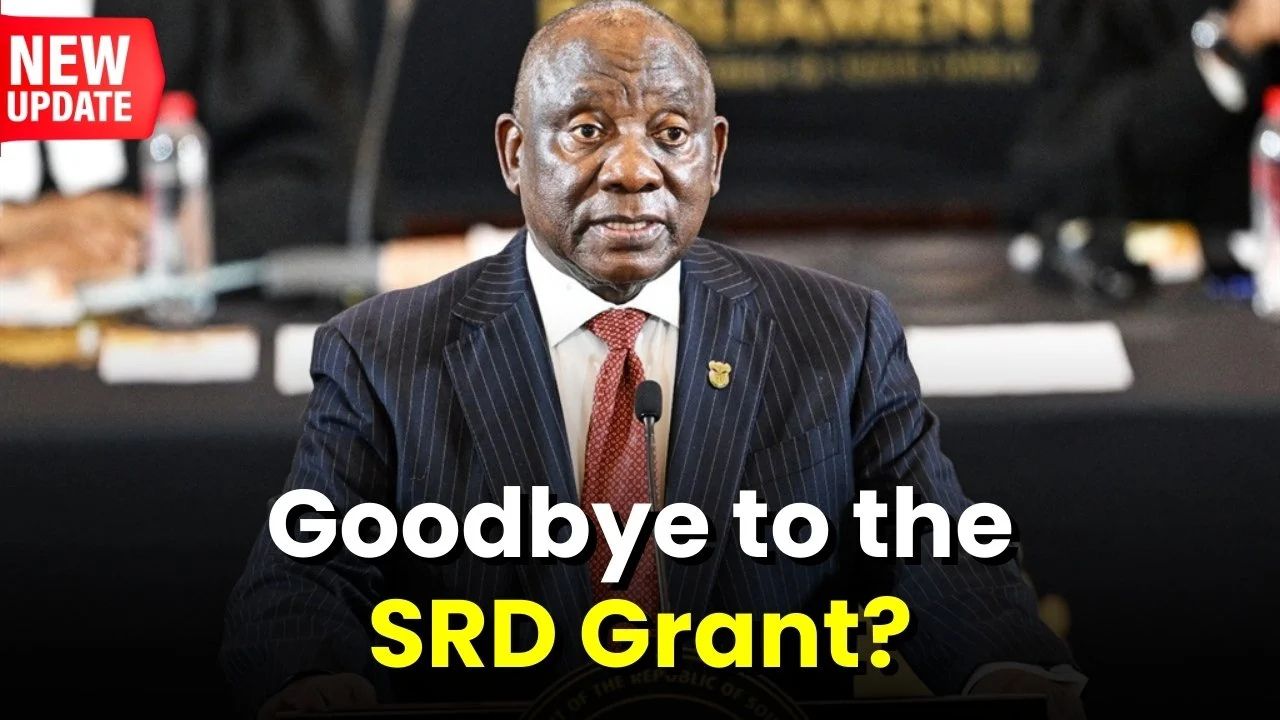Since its inception in 2020, the Social Relief of Distress (SRD) award has served as a vital source of financial assistance for millions of South Africans. The stipend, which was intended as a short-term solution to ease the financial burden brought on by COVID-19, gave jobless people who had no other way to get government assistance vital assistance. It has had a significant impact, assisting families in meeting necessities and lessening the consequences of poverty.
However, there are questions over the future of social support for disadvantaged people because the SRD funding is scheduled to end in March 2025. Possible alternatives are being discussed; they include modified employment-based subsidies and the Basic Income Grant (BIG). These choices can potentially change how South Africa approaches poverty and unemployment.
Millions of lives might be changed by this transition, which goes beyond a simple change in policy. As the nation prepares for this significant transition, citizens and officials must comprehend the possible successors and their ramifications.
Role of the SRD Grant in South Africa:
One of the most important instruments for addressing the socioeconomic effects of the epidemic was the SRD grant. In addition to providing short-term assistance, it addressed a significant weakness in the nation’s welfare system by serving those between 18 and 59 who were not eligible for other social awards.

- Meeting Immediate Needs: The R350 monthly stipend was utilized by recipients to pay for necessities like utilities, food, and transportation.
- Effect on Poverty: Government reports state that the SRD grant helped millions escape extreme poverty and eased the financial burden on low-income households.
- Flexibility and Accessibility: Unlike previous awards, the SRD grant gave beneficiaries the freedom to divide the money according to their particular need, guaranteeing prompt and direct assistance.
More than 7 million South Africans benefited from the stipend in 2023, demonstrating its broad reach. Its transient character emphasizes the necessity of a long-term substitute that can handle socioeconomic issues.
Potential Successors to the SRD Grant:
Policymakers are looking toward solutions to maintain social protection as the expiration date draws near.
Basic Income Grant (BIG): The proposed stipend will provide jobless people with steady cash assistance.
- Benefits: BIG would guarantee users’ buying power by offering long-term stability and the capacity to adjust to inflation.
- Implementation Challenges: Funding such a program necessitates substantial financial resources, which may involve budget reallocations or tax hikes.
Enhanced SRD Grant: extending the SRD grant while changing the qualifying requirements and amount.
- Benefits: Preserve the existing framework while meeting urgent financial demands.
- Limitations: It might not be enough for people who experience long-term unemployment,
Employment-Based Subsidies: These subsidies would combine financial assistance with work opportunities to encourage the development of jobs.
- Benefits: Promotes economic activity and lessens reliance on government assistance.
- Challenges: Due to obstacles like skill gaps or geographic limitations, not all jobless people may be able to find employment.
Impact on Vulnerable Populations:
Millions have relied on the SRD grant as a safety net, and disadvantaged groups may suffer significantly if it is eliminated or replaced.
- Millions may experience increased poverty if there is no substitute. Lack of funds can worsen food insecurity and make it harder to get necessities.
- The need for other social payments, such as child support and old pensions, may increase, straining SASSA’s finances.
- Rural Areas: Rural areas may be disproportionately impacted by limited access to alternate sources of income.
- Women: Households led by women, who are frequently already struggling financially, may encounter more severe financial difficulties.
- Social unrest might result from the abrupt termination of the SRD grant, especially in places where work possibilities are scarce and unemployment rates are high.
Preparing for the Transition:
People and the government must respond proactively to the impending changes.
For Individuals
- Financial Planning: To prepare for future income cutbacks, recipients should investigate budgeting techniques.
- Skills Development: Putting money into schooling and career training may lead to new job prospects.
For the Government
- Clear Communication: To control public expectations, it is crucial to provide regular updates on replacement plans.
- Stakeholder Engagement: To create inclusive solutions, policymakers must work with communities and civil society groups.
- Policy Innovation: Innovative strategies that balance social effect and budgetary sustainability are needed to address long-term socioeconomic issues.
An important turning point for South Africa’s social assistance system is the possible replacement of the SRD grant. The government’s choice will influence the nation’s strategy for reducing unemployment and poverty for years to come, regardless of whether it is implemented through an improved SRD, a Basic Income Grant, or other models. Individuals and policies must be ready for this shift to ensure that the most vulnerable are not left behind.
